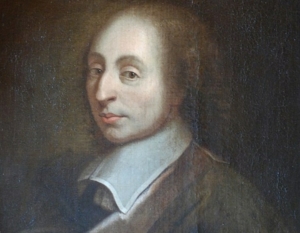The Greatest Blaise Pascal Inventions
Pascal’s Triangle is one of numerous Blaise Pascal’s inventions. One is positioned on top of two ones at the bottom level of this triangle arrangement of numbers. The third level is composed of a 1, a 2, and a 1 since each number in the triangle equals the sum of the numbers immediately above it. Pascal’s Triangle contains several significant mathematical patterns, such as the powers of two and the Fibonacci Sequence.
There is also the Theory of Probability. This theory was in correspondence with Pierre de Ferment a renowned mathematician. The two men came up with the essential concept of equally probable possibilities while corresponding to solve a gambling puzzle, which had evaded other analysts. Both heads and tails on a coin toss or any number from 1-6 on a single die roll are equally likely outcomes.
What About The Roulette Wheel
The calculating device which Pascal invented was the main reason he became famous. However, for too many gambling enthusiasts, the roulette wheel is his main claim to fame. ears passed with the wheel remaining in its Pascalian form. Francois and Lois Blanc created the zero-filled roulette wheel in 1851. The change was created especially for Monaco’s King Charles III. In America, the one-zero addition was rejected. Two zeros were added to the roulette wheel because the game operators thought the odds were stacked against them.
That is how we ended up with the roulette that we know and love today. There are three main roulette wheels which include the European French and American roulette wheels. The European and French variations share a wheel that only uses one zero whereas the American wheel variation has two zeros. When you play roulette at the best online roulette casino you will be able to try out all the roulette games to get a feel of how different they are and what the payouts are like.
What Was Blaise Pascal’s First Invention?
To help his father, who had been appointed intendant at Rouen in 1639, Pascal created the first digital calculator. Between 1642 and 1645, he spent three years working on it. The Pascaline, as it was known, looked like a mechanical calculator from the 1940s. The design of the calculator caused some issues for Pascal which were all due to the design of the French currency at the time.
Due to the design of the French currency at the time, Pascal had issues when creating the calculator. A livre contained 20 sols, while a sol contained 12 deniers. The system persisted in France until 1799, although a similar multiples-based system persisted in Britain until 1971. Pascal had to work with this partition of the livre into 240 considerably more difficult technical difficulties than he would have if the division had been 100. However, as Adamson notes, the machines’ manufacturing began in 1642.
Did Blaise Pascal Believe in God?
Pascal was the first to recognize the importance of entirely turning away from the world to God, and he persuaded his family to embrace spiritual life in 1646. After his father’s illness, this occurred. Pascal got in touch with a deeper form of religious expression. Numerous other articles contend that Pascal was involved in an accident in 1654 and, despite not suffering any bodily injuries, was psychologically affected by the experience. Shortly after the incident, Pascal vowed to live his life as a Christian.
At first, Pascal’s family adhered strictly to Roman Catholic doctrine, sometimes substituting it for their own internal religious beliefs. When Pascal started writing letters in support of a friend who opposed the Jesuits and advocated for Jansenism, his beliefs started to shift. The Pensées T, a compilation of personal reflections on human suffering and religious faith that Pascal began in late 1656 and worked on during 1657 and 1658, is his most well-known philosophical work. This work contains “Pascal’s wager,” which uses the following justification to suggest that faith in God is logical.
What Did Pascal Say About God?
Pascal believed that God is limitless and eternal. These concepts are incomprehensible to humans on a rational level. Therefore, God cannot be explained by reason. Pascal also asserted that faith was necessary for faith, which is the belief in God even in the absence of evidence. Fortunately for Pascal, belief does not require convincing. It was given to us by God.
Therefore, only those who are God’s chosen can have faith in him. There is no rational way for someone to believe in God. Pascal did not appreciate reason when it came to the divine because no theory could adequately capture the mysticism of God. Faith, on the other hand, grants us a belief in God, which is as close to knowing the divine as we can get.
Everything that we have about Pascal. While this philosopher has left behind a one-of-a-kind legacy, he forgot to mention how Big Dollar Casino is one of the best casinos online to play roulette.
We have the best roulette games, top payment options, and fast payouts. And if you ever need a little help with launching casino games, making payments, or simply want to say hi, you can get in touch with our amazing customer team.
Don’t wait to hear this review from a friend, sign up to play roulette RIGHT NOW!



